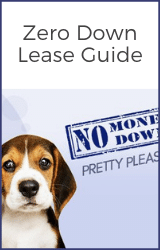What is Residual Value in a Car Lease?
November 29, 2020
I am a serial entrepreneur and a consumer advocate. When I’m not helping car buyers, I love working on ventures that have a positive impact. I run a cause marketing agency and serve on the board of Vayu Global Health where we are disrupting the medical industry and preventing the needless deaths of mothers and babies during childbirth.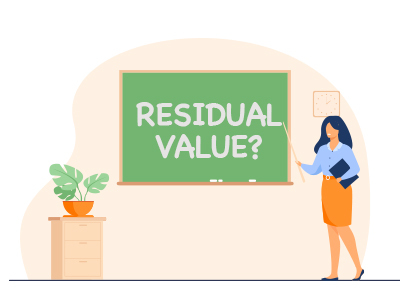

The monthly payment is the number most car shoppers look at when considering a lease. However, just focusing on monthly payments won't show you the whole picture. To know if you're getting a great deal on a car lease, you must know the car's residual value and how the residual value impacts the monthly payment.
In this post, we'll break down what a residual value is and why it's important.
Table of Contents
- What's the Residual Value in a Car Lease?
- Who Determines the Lease-End Value?
- How Does Residual Value Impact Your Monthly Payment?
- Lease-End Value and Buying at the End of the Lease
- Consider Residual Value When Shopping for a Car Lease
- What Other Manufacturers Offer a Zero Down Lease?
- Best Lease Deals by Category
- Frequently Asked Questions
What's the Residual Value in a Car Lease?
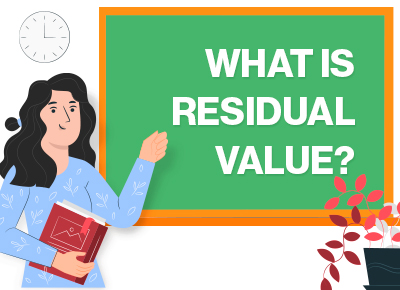 The residual value is also known as the lease-end value or lease-end purchase price. Essentially, it's an estimate of the wholesale value of the vehicle at the end of the lease term.
The residual value is also known as the lease-end value or lease-end purchase price. Essentially, it's an estimate of the wholesale value of the vehicle at the end of the lease term.
When you lease a car, you are paying for the part of the car's value that you use. When a car leaves the lot, it's value begins to drop, which is known as depreciation. As you drive the car for longer and add more miles, the car depreciates more.
The depreciation is what is "taken away" from the vehicle's value, and the residual is the value that is left.
Who Determines the Lease-End Value?
The lease-end value is set by the company financing the lease, not by the dealer. The finance company will account for depreciation, demand for the model, and the impact of mileage when determining its lease-end purchase price.
RELATED: What You Need to Know About Short-Term Car Leases
How Does Residual Value Impact Your Monthly Payment?
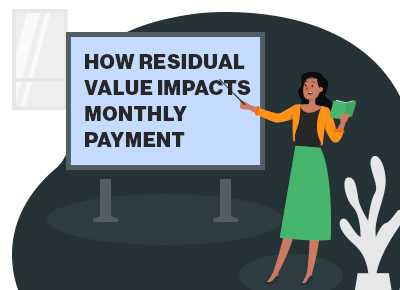 Residual value is one major factor that influences what your monthly payment will be.
Residual value is one major factor that influences what your monthly payment will be.
Let's look at a simple example.
Imagine that you lease a vehicle with a manufacturer's suggested retail price of $30,000 for a three-year lease term. If the vehicle has a 50% residual value, it means that it's predicted to be worth 50% of the MSRP at the end of the lease. When you subtract the residual value from the starting MSRP, you get $15,000, which is what you will pay for with your monthly payments. You'd pay $15,000 over a 36-month lease, making your base payment $416. Then, taxes, interest (calculated from the money factor), and fees are added to the base payment to give you your overall payment.
Watch what happens if we use the same example but adjust the residual value. Let's say the car had a residual value of 65%. The $30,000 car would be projected to lose only $10,500 rather than $15,000. Your base monthly cost would drop from $416 to $292.
As you can see, the residual value impacts monthly payments. When the residual value is higher, the monthly payments are lower. Low monthly payments are great, but is it always best to have a higher residual value?
Lease-End Value and Buying at the End of the Lease
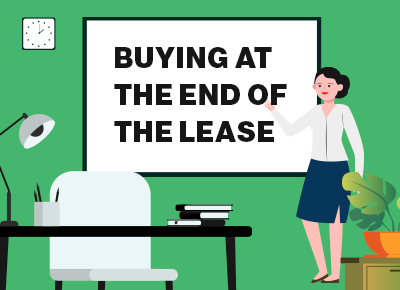 One big reason people lease instead of buy is to avoid a large down payment and instead opt for low monthly payments. However, sometimes at the end of the lease, you'll decide you enjoy the car and want to buy it.
One big reason people lease instead of buy is to avoid a large down payment and instead opt for low monthly payments. However, sometimes at the end of the lease, you'll decide you enjoy the car and want to buy it.
While an inflated residual value will give you lower monthly payments, it means the car will be "worth more" at the end of the lease. Therefore, the higher the lease-end value is, the more you'll have to pay for the car. Many times, this means you'll end up paying more for the car after your lease than you would for the same used vehicle elsewhere.
READ MORE: Consider Leasing a Used Car
Consider Residual Value When Shopping for a Car Lease
The bottom line is that you need to consider how a car holds its value before leasing it. You'll need to pay attention to the lease-end value based on your car-leasing goals. The best thing you can do is to review current lease deals and negotiate the best car price before mentioning leasing. This way, you will negotiate the best car lease and guarantee the lowest possible spread between the price you pay and the residual value.
What Other Manufacturers Offer a Zero Down Lease?
Even if a manufacturer does not have any advertised zero down-payment deals, almost all of them are willing to forgo a down payment if you have good credit. Check out my guide to learn how to negotiate a lease to not pay anything up front.
Frequently Asked Questions
What is residual value when it comes to a car lease?
The residual value is also known as the lease-end value or lease-end purchase price. Essentially, it's an estimate of the wholesale value of the vehicle at the end of the lease term. The depreciation is what is "taken away" from the vehicle's value, and the residual is the value that is left.
How does the residual value affect monthly payments on a car?
Residual value is one major factor that influences what your monthly payment will be. When the residual value is higher, the monthly payments are lower.
How is the residual value calculated on a car lease?
The way to determine lease-end value is by subtracting the depreciation value from the original value of the vehicle. The lease financer will calculate depreciation based on market demand and related factors, and then subtract the depreciation from the MSRP to determine the residual value.
What's a good residual value?
Residual percentages for a 36-month lease tend to be around 50%, but can be as high as the mid-60s.
Do you want a high or low residual value on a lease?
Your car-buying goals affect the residual value you should look for. Those who will definitely return the vehicle at the end of the lease and want to use the car for the least cost should seek out ones with a high residual value. On the other hand, if you would consider buying at the end of the lease, you should consider cars with a low lease-end value so it will be affordable at the end of the lease term.
How can I negotiate the best deal on my car lease?
To get the best deal on a car lease, you'll need to consider the selling price, residual value, interest, and more. Read this post to learn more about negotiating a car lease.
Posted in Car Buying Tips |

